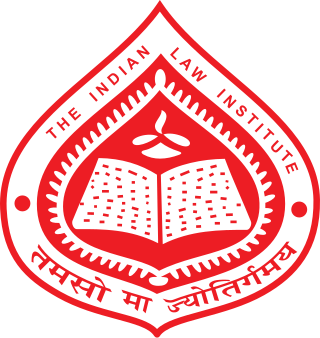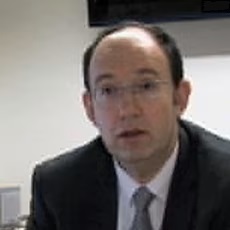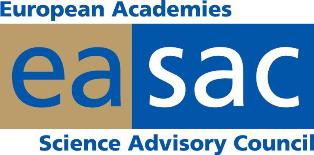Related Research Articles
Software engineering is an engineering-based approach to software development. A software engineer is a person who applies the engineering design process to design, develop, test, maintain, and evaluate computer software. The term programmer is sometimes used as a synonym, but may emphasize software implementation over design and can also lack connotations of engineering education or skills.
National Association of Software and Service Companies (NASSCOM) is an Indian non-governmental trade association and advocacy group that primarily serves the Indian technology industry. Founded in 1988, NASSCOM operates as a nonprofit organization and serves as a key entity within the Indian technology sector.

The Institution of Engineering and Technology (IET) is a multidisciplinary professional engineering institution. The IET was formed in 2006 from two separate institutions: the Institution of Electrical Engineers (IEE), dating back to 1871, and the Institution of Incorporated Engineers (IIE) dating back to 1884. Its worldwide membership is currently in excess of 158,000 in 153 countries. The IET's main offices are in Savoy Place in London, England, and at Michael Faraday House in Stevenage, England.
Governance of the University of St Andrews is laid down in a series of Acts of Parliament enacted between 1858 and 1966, and the Higher Education Governance (Scotland) Act 2016.

The United Nations Institute for Disarmament Research (UNIDIR) is a research institute of the United Nations focused on disarmament and international security. It was established in 1980 by the United Nations General Assembly with the stated purpose of informing states and the global community on questions of international security, and to assist with disarmament efforts so as to facilitate progress toward greater security and economic and social development for all.
The National Security Council (NSC) of India is an executive government agency tasked with advising the Prime Minister's Office on matters of national security and strategic interest. It was established by the former Prime Minister of India Atal Bihari Vajpayee on 19 November 1998, with Brajesh Mishra as the first National Security Advisor.

The College of Engineering, Kallooppara, is an engineering college located in Kallooppara in the Pathanamthitta District of Kerala. It was established by the Institute of Human Resources Development in 1999. The college is affiliated to the APJ Abdul Kalam Technological University and approved by All India Council for Technical Education.

The Indian Law Institute (ILI) is a Deemed University and socio-legal research institute, founded in 1956. Established in New Delhi, primarily with the objective of promoting and conducting legal research, education and training. The objectives of the Institute as laid down in its Memorandum of Association are to cultivate the science of law, to promote advanced studies and research in law so as to meet the social, economic and other needs of the Indian people, to promote systematization of law, to encourage and conduct investigations in legal and allied fields, to improve legal education, to impart instructions in law, and to publish studies, books, periodicals, etc.
Phil Reitinger was the Deputy Under Secretary of the National Protection and Programs Directorate (NPPD) and Director of the National Cybersecurity Center (NCSC) at the United States Department of Homeland Security from 2009 to 2011. During that time, Reitinger led the department's integrated efforts to reduce risks across physical and cyber infrastructures and helping secure federal networks and systems by collecting, analyzing, integrating and sharing information among interagency partners.

Sir Anthony Charles Wiener Finkelstein is a British engineer and computer scientist. He is the President of City, University of London. He was Chief Scientific Adviser for National Security to HM Government until 2021.

Nexor Limited is a privately held company based in Nottingham, providing products and services to safeguard government, defence and critical national infrastructure computer systems. It was originally known as X-Tel Services Limited.
Carl E. Landwehr is an American computer scientist whose research focus is cybersecurity and trustworthy computing. His work has addressed the identification of software vulnerabilities toward high assurance software development, architectures for intrusion-tolerant and multilevel security systems, token-based authentication, and system evaluation and certification methods. In an invited essay for ACSAC 2013, he proposed the idea of developing building codes for building software that is used in critical infrastructures. He has organized an NSF funded workshop to develop a building code and research agenda for medical device software security. The final committee report is available through the Cyber Security and Policy Institute of the George Washington University, and the building code through the IEEE.
The United Kingdom has a diverse cyber security community, interconnected in a complex network.
The Trustworthy Software Foundation (TSFdn) is a UK not-for-profit organisation, with stated aim of improving software.

Ian Bryant is a British academic, engaged in promoting Trustworthy Software and Systems, and in Standardisation.

Stephen Joseph Lukasik was an American physicist who served in multiple high-level defense and scientific related positions for advancing the technologies and techniques for national defense and the detection and control of diverse types of weapons of mass destruction, especially nuclear devices. He was the second longest serving Director of DARPA - the Defense Advanced Research Projects Agency – during which numerous new technologies including packet and internet protocols were developed. He was also the first chief scientist of the Federal Communications Commission where he created its Office of Science and Technology and which facilitated the commercial deployment of new technology that included spread spectrum technology.
Aled Euros Miles is a British-American information technology executive and internet security expert currently based in San Francisco and Los Angeles, California.

The European Academies' Science Advisory Council (EASAC) is a regional association of National Academies of science. Its members are 25 National Science Academies of the Member States of the European Union (EU), and the National Science Academies of Norway, Switzerland and the UK. Malta and Luxembourg do not have National Academies of Science. A pan-European Academy (Academia Europaea) and a network of all Academies from across the continent of Europe also have membership (ALLEA). EASAC was founded in June 2001 and was headquartered at the German National Academy of Sciences Leopoldina in Halle (Saale) until 31 December 2022.

Prashant Pillai is an Indian-born British computer scientist. He is the Pro Vice-Chancellor for Research and Knowledge Exchange at the University of Wolverhampton, UK. He was previously the Associate Dean for Research and Knowledge Exchange and Professor of Cyber Security at the University of Wolverhampton. He is also the Director of Cyber Quarter - Midlands Centre for Cyber Security. He specialises in security and privacy for communication networks. Pillai has led several national/international research projects in the areas of networking protocols and cyber security. He has been invited for talks at various international conferences and has published over 100 papers within peer-reviewed journals and conferences.
References
[5] [6] [7] [8] [9] [10] [11] [12] [13] [14] [15] [16] [17] [18]
[20] [ circular reference ] [21] [22] [23] [24] [25] [26] [27]
- ↑ "Articles of Association".
- ↑ "Articles of Association".
- ↑ "Cyber OSPAs - Judges".
- ↑ "John Thompson - Awarded a prestigious project prize from the Institute of Analysts and Programmers". Archived from the original on 3 December 2013. Retrieved 8 July 2015.
- ↑ "About - Government IT Profession - GOV.UK". it.civilservice.gov.uk. Retrieved 8 July 2015.
- ↑ "Systems analyst Job Information | National Careers Service". nationalcareersservice.direct.gov.uk. Retrieved 8 July 2015.
- ↑ "Systems analyst | Student Times". studenttimes.org. Retrieved 8 July 2015.
- ↑ "Careers :: Occupations and industries". brighton.ac.uk. Retrieved 8 July 2015.
- ↑ "Professional Associations". i-programmer.info. Retrieved 8 July 2015.
- ↑ "Professor Peter Welch presents invited talk at Institution of Analysts and Programmers (IAP) Symposium - School of Computing - University of Kent". Archived from the original on 29 September 2004. Retrieved 8 July 2015.
- ↑ "Programming, Systems Analysis and Software | Information technology |". ed.ac.uk. Archived from the original on 10 July 2015. Retrieved 8 July 2015.
- ↑ "Institution of Analysts and Programmers Spring Seminar | techcosupport.com". techcosupport.com. 24 February 2009. Retrieved 8 July 2015.
- ↑ "Centre for Internet Technologies :: Institution of Analysts and Programmers (IAP)". cit.sunderland.ac.uk. Retrieved 8 July 2015.
- ↑ "Error 404! Concise Courses". concise-courses.co.uk. Archived from the original on 28 November 2013. Retrieved 8 July 2015.
- ↑ "[ARCHIVED CONTENT] Institution of Analysts and Programmers". Archived from the original on 3 February 2010. Retrieved 8 July 2015.
- ↑ "Apply Mobile – Apply Mobile @ The Institution of Analysts and Programmers Conference 2012". applymobile.co.uk. Retrieved 8 July 2015.
- ↑ Balkaran, L. (2007). Directory of Global Professional Accounting and Business Certifications . Wiley. p. 161. ISBN 9780470165034 . Retrieved 8 July 2015.
- ↑ "Careers :: Occupations and industries". about.brighton.ac.uk. Retrieved 8 July 2015.
- ↑ About:: Science and Technology. shaws.co.uk. 2014. ISBN 9780992874001 . Retrieved 8 July 2015.
- ↑ TSF:: Science and Technology, Retrieved 2019-06-22
- ↑ "Channel 4:: Ageism". 27 April 2012.
- ↑ "Security Institute:: Cyber Security Alliance".
- ↑ "Crest:: Cyber Security Alliance".
- ↑ "Engineering Council:: Cyber Security Alliance".
- ↑ "The Register:: Cyber Security Alliance". The Register .
- ↑ "The Independent:: Cyber Security Alliance". Independent.co.uk . 31 March 1997.
- ↑ "UK Cyber Security Council:: Founding Members".